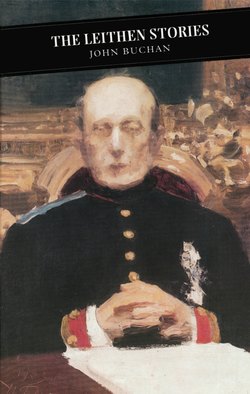Читать книгу The Leithen Stories - Buchan John - Страница 7
На сайте Литреса книга снята с продажи.
V
ОглавлениеThroughout the four books Buchan seems to be preoccupied with what the literati of the eighteenth century would have called ‘notions’ derived from philosophy and anthropology, or had these confirmed by his wartime experience. The first was the fragility of civilisation. A somewhat thetorical apprehension in his pre-war books, this had now become reality. Man’s capability of generating evil was far greater because of the eclipse of the constraints Buchan associated with western Christendom, and Lumley’s reference to China introduces the ‘Asiatic’ combination of the wielding of power and its abnegation that Buchan elaborated in his master-villain Dominick Medina in The Three Hostages (1924). This ‘rebarbarisation’ would loom over The Dancing Floor – Plakos wasn’t far from Smyrna, and its appalling massacre in 1922 – and even the japes of John Macnab. Young Claybody’s private army – a Highland Freikorps? – draws on the unemployed set adrift by the post-war slump. Buchan’s German friends like Moritz Bonn would make him aware of where this could lead.
Linked to this was something he derived from Freud via Frazer: the role of repressive doctrine. To Buchan this stemmed from over-mechanistic religion which recoiled from the cycle of nature, and bred evil and sexual perversion. If Shelley Arabin was based on Lord Byron, whose private letters had horrified Buchan – if not Henry James – investigating them in 1905, then the impact of Calvinist repression of the sort dramatically evident in Witch Wood (1928) couldn’t be discounted. The young Buchan who had gone to Brasenose hoping to study under Walter Pater, would also have known all about Gilles de Rais, quondam ally of Joan of Arc, pederast and child-murderer, central to J.–K. Huysmans’ Là-Bas (1891).
Finally, myth and ritual gave to a humanity assailed by ‘mass culture’ and ‘mass politics’ a prospect of ecological harmony. Buchan was reared in an intellectual tradition in which the scientific had always been related to the anthropological and the theological: by the Scottish Enlightenment, by Carlyle, by Robertson Smith and Frazer, and a growing Scots’ fascination with psychoanalysis. Getting to the heart of the matter seemed necessary in the post-war turmoil, when the structures of liberal capitalism were collapsing. In The Dancing Floor Vernon Milburne recognises the rituals of Plakos as ultimately benign, going back not just beyond Christianity but predating the ‘noisy, middle-class family party’ of the Greek gods: ‘You may call her Demeter, or Aphrodite, or Hera, but she is the same, the Virgin and the Mother, the “mistress of wild things”, the “priestess of the new birth in spring”.’
In Sick Heart River this ‘natural theology’ is assimilated not so much into the Canadian Indians’ respect for their natural environment – the Hares are their environment’s victims – but into the quandary of the ‘true’ Canadians, the half-breed Frizels. The pollution and environmental destruction that Gaillard’s factory has inflicted on the Clairefontaine, are the cognate penalty of mechanistic ‘civilisation’. Making the connection, and consequently the new Canada, is the ideal for which Leithen ultimately sacrifices himself.
Buchan/Leithen was a product of that peculiar involvement of the Scots with empire, whereby patronage, career-development and economic exploitation were also linked up with the drive to understand so typical of a Scots-influenced intelligentsia. Buchan’s first publication in 1894 had been Essays and Apothegms of Francis Lord Bacon: ‘all knowledge was his province’. His mission to know, but also to evangelise, made him what H.G. Wells called in, The New Machiavelli (1911) – with Buchan’s friend G.M. Trevelyan in mind – a secular monk. Wells didn’t mean this in any kindly sense, believing that science and sexual hedonism were delightfully compatible. Leithen’s motor was quite obviously sublimation in the Freudian sense, but he was no less of a scientist for ending up a priest-king.
Christopher Harvie
(This introduction benefitted from discussions with my wife Virginia, the Rev. James Greig and Owen Dudley Edwards. Responsibility for any mistakes is mine alone. C.H.)
